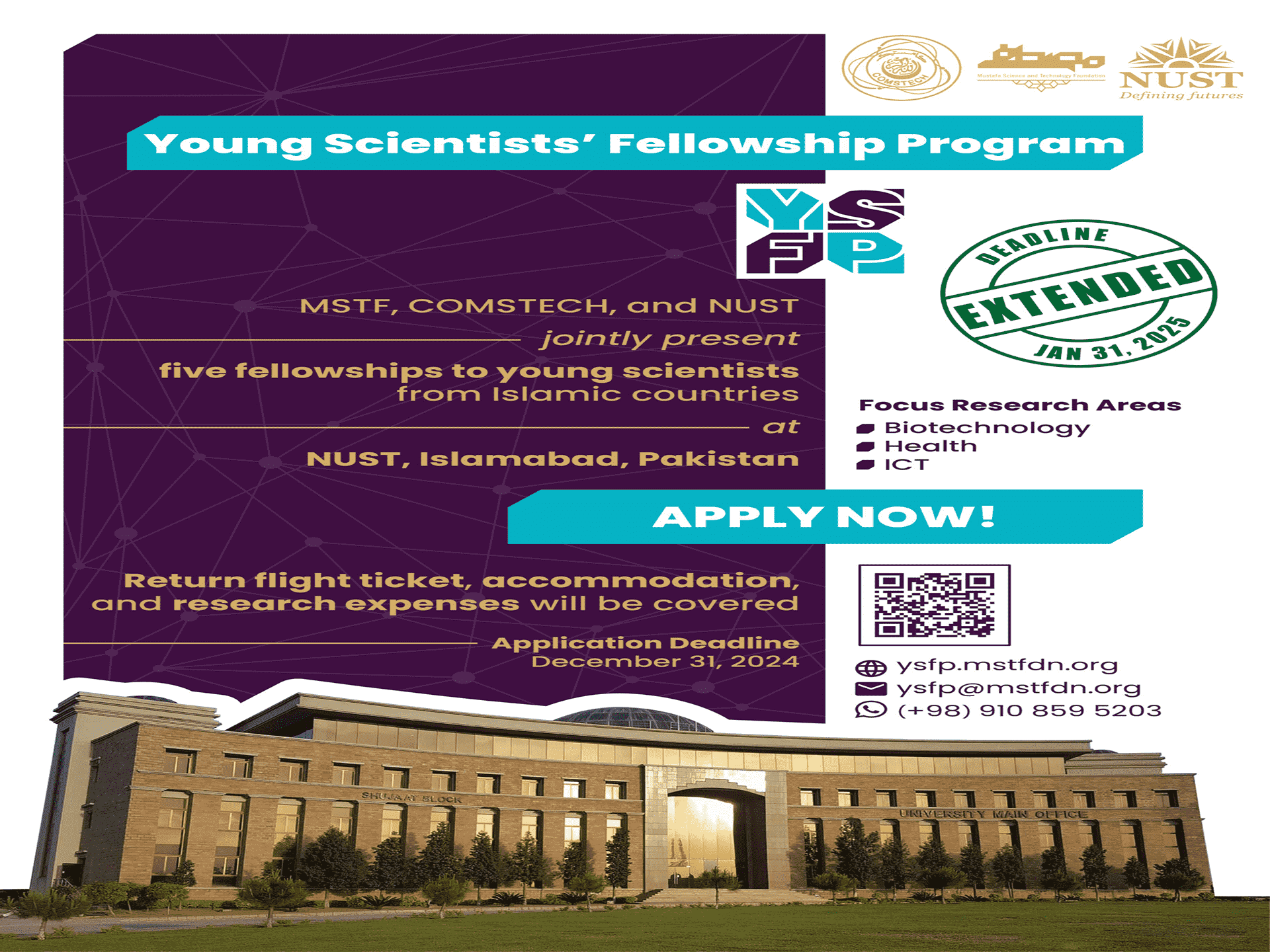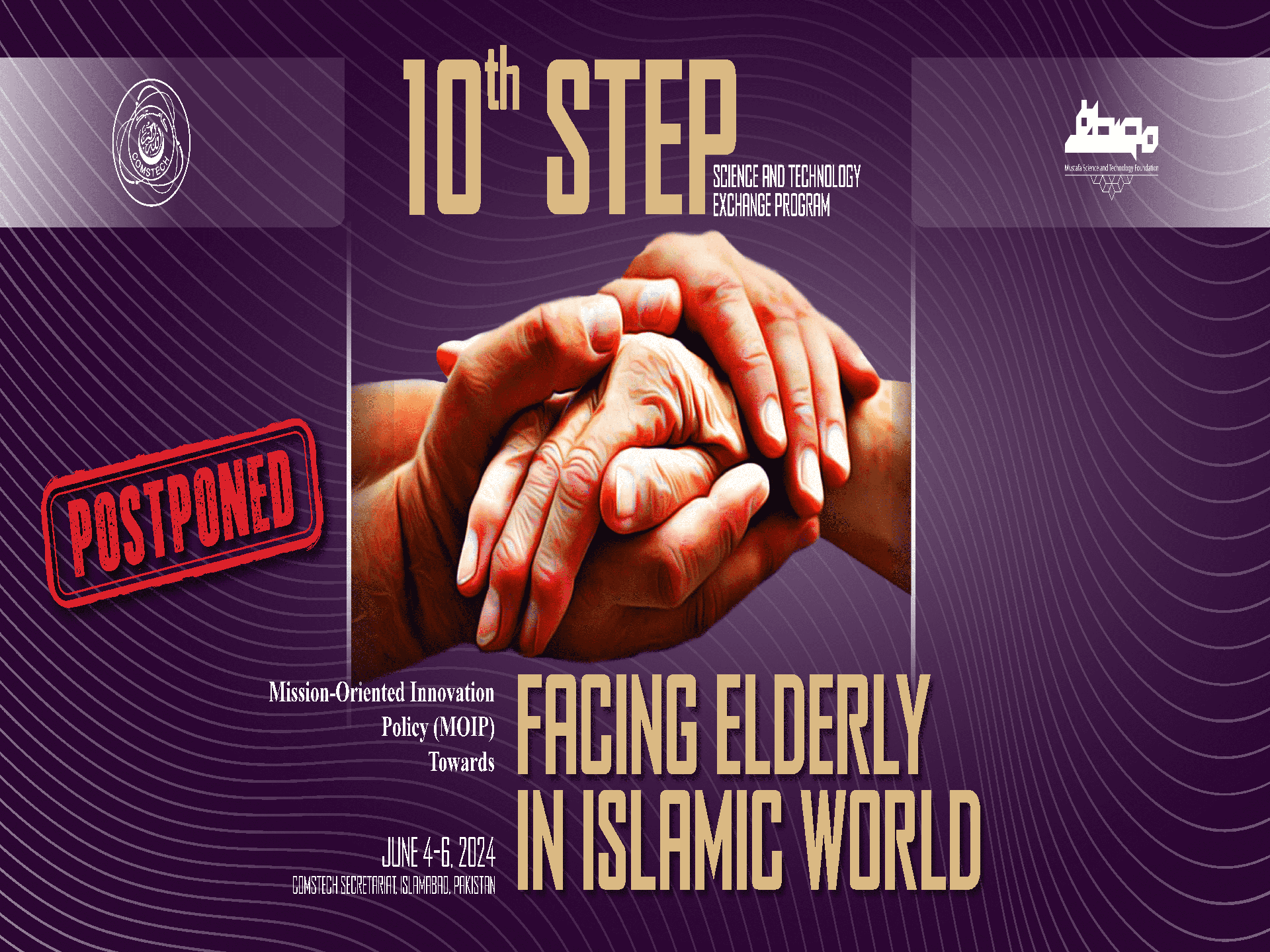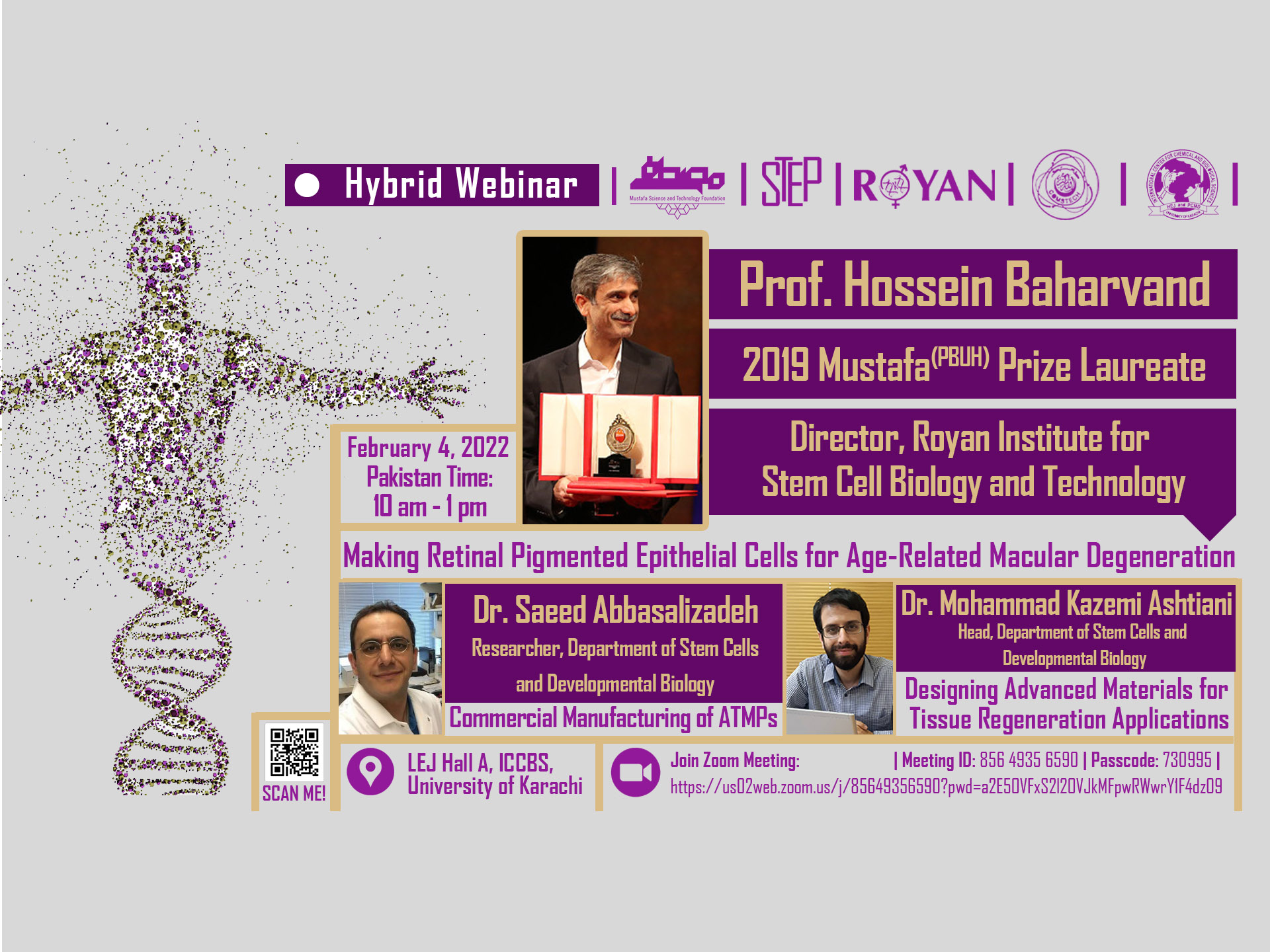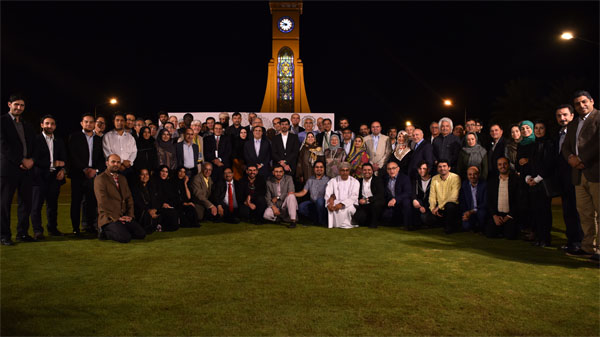7th STEP
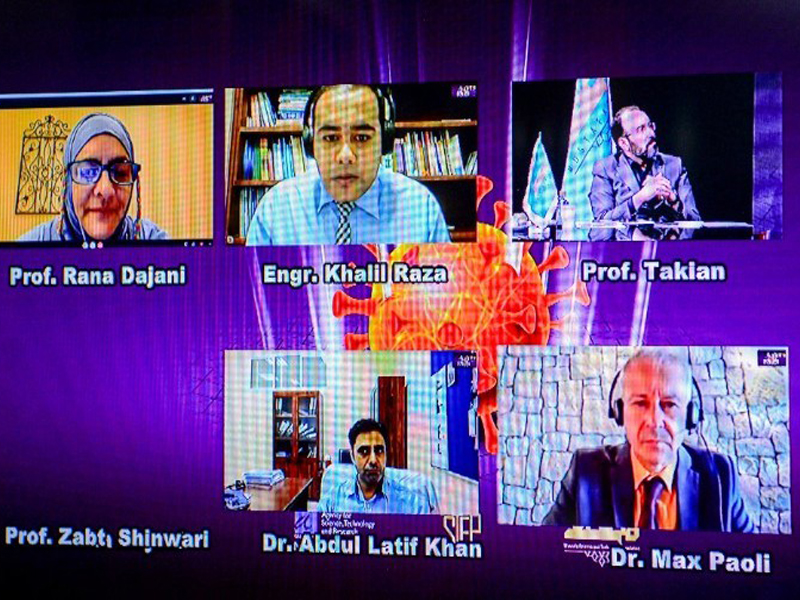
7th STEP convenes scientists virtually to share COVID-19 findings
18 May. 2020
The global pandemic caused by COVID-19 is making many people reduce social interactions to a minimum and stay safe at home. However, this does not stop the need to engage in knowledge exchange and critical debates in the realms of science and technology. Mustafa Science and Technology Foundation thus held the first day of the 7th Science and Technology Exchange Program in virtual space to foster the exchange of ideas on the currently critical issue of Coronavirus pandemic.
event saw the presence of a dozen scholars from Iran, Pakistan, China, Malaysia, Indonesia, Azerbaijan, and Bangladesh. During the program, scientists gave individual talks on various aspects such as their experiences in dealing with the Coronavirus pandemic, the contribution of universities, private sectors, and non-governmental organizations in fighting Covid-19, the use of high technology in tackling COVID-19, and initiatives taken by different countries to fight the virus. Rassul Dinarvand, Professor of Pharmaceutical Nanotechnology at Tehran University of Medical Sciences, Iran, and chair of the 7th STEP, moderated the event.
The speakers then started their consecutive presentations regarding the experiences of medical staff and the achievements of scientists in the Islamic world in helping to solve the global challenge of the Coronavirus.
Abdol Majid Cheraghali, professor at Baqiyatallah University of Medical Sciences in Iran, spoke of the “Management of COVID-19 Iranian Patients using convalescent plasma.” This method has proven extremely useful only if the plasma is infused in the early stages of COVID-19. In this case, the chance of prevention of severe stages of the disease is increased.
Farshad Farzadfar, Chair of Non-Communicable Diseases Research Center in Iran, gave a speech on NCDRC's initiatives in COVID-19 pandemic. He talked about an application-based method used in Iran to collect data of people's movements and the districts with higher-risk coronavirus infection in Iran. This method shows the number of people respecting the lockdown, the number of businesses that are most impacted by lockdown measures in Iran, and also co-morbid patients who are at higher risk. This information would benefit public health initiatives in Iran and around the world.
The next presenter Sherina Mohd Sidik, deputy director of Cancer Resource and Education Center in Malaysia and professor at the Faculty of Medicine and Health Sciences, Universiti Putra Malaysia, discussed “Experiences and Observations in dealing with COVID-19 among patients with cancer.” The two main issues she touched upon were the fact that the treatment sessions of cancer patients have to be rescheduled to reduce congestion in hospital wards as a precautionary measure for prevention, and that they have to undergo immense fear and anxiety lest they should catch COVID-19. She also explained the measures taken by Malaysia to help cancer patients during the time of the pandemic.
Next came Daryono Hadi, Dean of School of Pharmacy, Bandung Institute Technology in Indonesia, who discussed the ways universities, private sectors, and non-government
organizations contribute to fighting the COVID-19 pandemic. He provided an abundance of evidence in his presentation slides which attested to the fact that there is zealous cooperation on the part of individuals, private sectors, NGOs, and universities in Indonesia which is highly beneficial for fighting Coronavirus.
After that, Wasim Jafri, Head of the Gastroenterology Section, Aga Khan University in Pakistan, gave a presentation on “COVID-19, learning from the Chinese experience, Current and future implications in Pakistan.” Also, Rustam Rustamov, professor at eiLink Research and Development Center of Khazar University in Azerbaijan, shared “Achievements and Challenges/High Technology Engagement for COVID-19.”
Faridul Alam, Vice-Chancellor of Bangladesh University of Medical Sciences, discussed the initiatives taken by Bangladesh Medical Community in response to COVID-19. Alam announced that a team from Child Health Research Foundation (CHRF) has successfully completed the genome sequencing of the SARS-CoV-2 in Bangladesh.
Finally, Jian-cang ZHOU, Executive VP of Jiangshan Hospital affiliated to Sir Run Run Shaw Hospital in China and Director of ICU for the critical patients with COVID-19, talked about the “experiences of China in dealing with COVID-19.”
The second day of STEP 7 will take place on May 28, 2020, with the presence of Prof. Ugur Sahin and Prof. Jackie Ying, the former Mustafa Prize laureates who have recently made breakthroughs in fighting COVID-19.
News Source: MSTF Media


